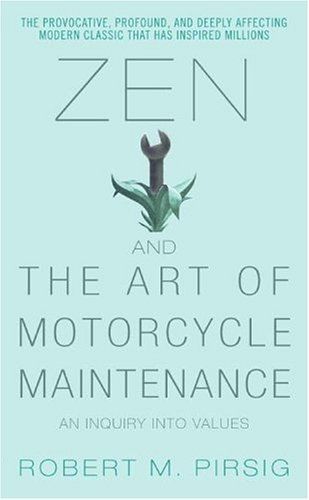
Zen and the Art of Motorcycle Maintenance An Inquiry Into Values
One of the most important and influential books written in the past half-century, Robert M. Pirsig's Zen and the Art of Motorcycle Maintenance is a powerful, moving, and penetrating examination of how we live . . . and a breathtaking meditation on how to live better. Here is the book that transformed a generation: an unforgettable narration of a summer motorcycle trip across America's Northwest, undertaken by a father and his young son. A story of love and fear -- of growth, discovery, and acceptance -- that becomes a profound personal and philosophical odyssey into life's fundamental questions, this uniquely exhilarating modern classic is both touching and transcendent, resonant with the myriad confusions of existence . . . and the small, essential triumphs that propel us forward.
Reviews
Doug Belshaw@dajbelshaw
Tanishq Khandelwal@tanishq
Liam Richardson@liamactuallyreads
anjali@anjalislibrary
Andrew Reeves@awreeves
John Nettles@jnettl2
Steve C@markspace
Gabriel Ayuso@gabrielayuso
Gavin@gl
Matthew Royal@masyukun
Jowanza Joseph@josep2
Michael Burkhardt@mihobu
Christine@cluprete
Jk Jensen@jkj
Barry Hess@bjhess
Fred Rocha@johnfisherman
Nat Welch@icco
Meniah@athoughtfulrecord
Tara King@sparklingrobots
Juozas Salna@pukomuko
Adam@adam
Frank Meeuwsen@frank
Matt Moore@mcm
william@williamhzo
Highlights
Liam Richardson@liamactuallyreads
JT Helms@jthelms
Page 5
Luka@luka
Page 7
Luka@luka
Page 5
Georgia Ball@cicerhoe
Bastien Vaucher@bastien
Page 279
Bastien Vaucher@bastien
Page 191
Bastien Vaucher@bastien
Page 140